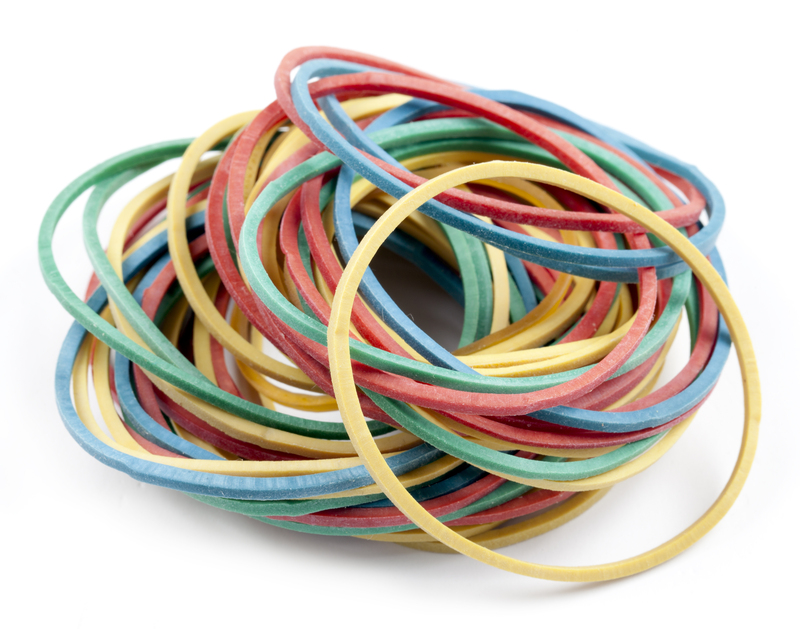Smart Budgeting Hacks for Disposing of Bulky Waste Items
If you've ever faced the challenge of clearing out an old sofa, broken appliances, or major renovation debris, you already know that disposing of bulky waste items can be expensive and stressful. But with the right approach, you can save money, protect the environment, and keep your property clean and organized. In this comprehensive guide, we'll reveal smart budgeting hacks for disposing of bulky waste items, offering practical tips for every budget.
Understanding Bulky Waste and Budget Constraints
Bulky waste--also known as large household items or oversized refuse--includes furniture, mattresses, appliances, carpets, and yard debris. Disposing of these items often incurs costs due to their size and special handling requirements. Not everyone has a large disposal budget, so finding efficient and cost-effective disposal methods is key.
What Makes Bulky Waste Disposal Expensive?
- Special collection fees by municipal services
- Rental of dumpsters or skips
- Transportation to recycling centers or landfills
- Environmental charges for non-recyclable or hazardous waste
Fortunately, smart budgeting hacks for large waste disposal can help you save money and reduce hassle.

Plan Ahead: The First Step in Affordable Bulky Waste Removal
Effective budgeting for bulky item disposal starts with a well-thought-out plan. Assess the quantity and type of waste, potential resale value, municipal collection schedules, and possible recycling opportunities. Planning ahead not only reduces expenses--it can also identify opportunities to benefit your community or local environment.
Key Steps in Planning:
- Inventory your items: List everything you want to dispose of and evaluate its condition.
- Research local regulations: Some municipalities offer discounted bulky waste collection days or free pick-ups for certain items.
- Set a budget: Decide how much you can afford to spend, including potential hauling fees or equipment rentals.
- Schedule accordingly: Align with community pickup schedules or local events for free disposal.
Free and Low-Cost Bulky Waste Disposal Methods
Looking to dispose of large items without blowing your budget? Here are several creative approaches to do it cheaply or even for free:
1. Utilize Municipal Bulky Item Collection Days
Most cities and towns periodically offer free or low-cost pickup days for oversized waste. Check your municipality's website or contact your local public works department for schedules. Tip: Mark these dates in your calendar to avoid last-minute costs or the need for private hauling.
2. Donate Usable Items to Charity
If your large waste item is still in good shape, many non-profits and charities will pick up furniture, appliances, or mattresses for free. Some organizations can even provide a tax deduction receipt.
- Contact local shelters, thrift stores, or community centers.
- Use online tools such as Donation Town to schedule a pickup.
- Consider Habitat for Humanity, Goodwill, or The Salvation Army.
3. Sell or Gift Bulky Items Online
Leverage platforms like Facebook Marketplace, Craigslist, Freecycle, or OfferUp to sell or give away your large waste. Not only does this reduce disposal costs, but you might also earn some money back.
- List items as "Curb Alert" if they're free for pickup.
- Disclose condition honestly to avoid disputes.
4. Break Down Items for Simple Disposal
Large items, when disassembled, can often be put out with regular trash--saving on special collection fees. Use tools to break down furniture or appliances into manageable pieces. Always follow local safety and disposal guidelines.
- Remove metal parts or hazardous materials first.
- Sort recyclable components (metal, wood, fabric) for eco-friendly disposal.
5. Community Swap Events and Neighborhood Clean-Ups
Many communities run periodic swap events or group cleanup days. Bring your bulky items for others to reuse, or work together to share the cost of a dumpster. This social approach is budget-friendly and promotes local sustainability.
6. Check for Manufacturer or Retailer Take-Back Programs
Some retailers and manufacturers offer free removal of old appliances or furniture when you buy a new one. Ask about take-back or recycling programs before making a purchase! This not only saves you money but also encourages responsible disposal practices.
Low-Cost Disposal: When Free Isn't an Option
If you're unable to dispose of your bulky waste for free, here are low-cost options that can significantly reduce your out-of-pocket expenses:
7. Share Dumpster Rentals with Neighbors
If one household can't fill a dumpster, consider organizing a shared rental with nearby residents. Splitting the cost among several families could save you hundreds, while also streamlining the cleanup process for your whole street or community.
8. Rent a Truck or Trailer Yourself
Hiring a waste removal company can be expensive, but DIY hauling is often much more affordable. Rent a pickup truck or trailer and take the items to a municipal landfill or recycling center. Just be sure to check weight limits and any possible disposal fees beforehand.
9. Contact Specialized Recycling Centers
Separate materials like metal, electronics, or mattresses may qualify for special low-cost recycling programs. Some centers actually pay for certain materials (e.g., scrap metal), further offsetting your costs.
10. Use Bagged Waste Collection Services
Some private companies provide large waste disposal bags (like Bagster or Gorilla Bags) that you can fill at your own pace. Once full, schedule a collection. This can be cheaper than full dumpster rental, especially for small to medium bulky loads.
Eco-Friendly and Sustainable Disposal Solutions
When disposing of oversized waste, it's vital to consider the environmental impact. Sustainable disposal not only aligns with budget goals (in reducing landfill fees), but also helps your community and the planet.
11. Creative Upcycling and Repurposing
Before tossing away that old dresser or door, ask yourself if it can serve a new function. Upcycling turns "trash" into unique home decor or functional items, saving disposal costs and supporting creativity.
- Convert an old dresser into a garden planter or tool bench.
- Use pallets for shelving or outdoor projects.
- Turn glass or metal pieces into art or storage solutions.
12. Hire Local Junk Haulers with Eco-Friendly Policies
Certain professional junk removal companies prioritize recycling and donation over landfill disposal. Always ask if they maintain partnerships with local recycling centers or charities--sometimes, this can even result in discounted rates if you sort items beforehand.
13. Participate in Appliance or Electronics "Round-Up" Events
Municipalities often organize electronics recycling drives or "white goods" collection events, where you can drop off items like refrigerators, washing machines, and televisions for minimal or no cost. Stay informed about local event calendars.
Budgeting Hacks for Renovators and Frequent Movers
If you're remodeling, flipping homes, or frequently moving, you probably deal with bulky waste more often than most people. Here's how to budget extra intelligently:
- Build disposal fees into your project plan: Itemize likely waste and calculate an average cost per load.
- Use commercial accounts or memberships: Some landfills and recycling centers offer discounted rates for regular users.
- Negotiate with contractors: Many renovation crews can handle disposal for a lower fee if bundled with your project.
- Schedule multiple projects together: This maximizes any dumpster or waste hauling investments.
Common Mistakes to Avoid in Bulky Waste Budgeting
- Waiting until the last minute--often leads to paying premium or rush fees.
- Ignoring local regulations--illegal dumping or improper sorting can result in heavy fines.
- Assuming all items are "junk"--you could be missing out on resale, donation, or rebate opportunities.
- Failing to compare quotes--always get multiple estimates for dumpster rentals or removal services.
Pro Tips for Maximizing Your Large Waste Disposal Budget
Take full advantage of your resources with these additional expert hacks:
- Coordinate with neighbors or local groups.
- Bundle disposal trips: Carry multiple items per load for efficiency.
- Ask about bulk discounts: Both public and private disposal services sometimes offer reduced pricing for large quantities.
- Reuse packing materials--like old boxes or padding--for safe transport of bulky items.
- Document donations to claim tax deductions and offset some costs.

The Environmental Case for Smart Bulky Waste Disposal
Disposing of large waste responsibly supports sustainability, reduces illegal dumping, and lessens landfill strain. Choosing to repair, upcycle, or recycle helps ensure your old possessions get a new lease on life.
Did you know? Across the US and Europe, more than half of illegally dumped material is classified as bulky or large waste. By following the budget-friendly bulky waste disposal hacks above, you're not just saving money--you're part of the solution!
Conclusion
Smart budgeting for disposing of bulky waste items is about planning, creativity, and community involvement. By exploring free municipal services, embracing resale or donation, and organizing cost-sharing initiatives, you minimize your expenses while maximizing social and environmental good. Remember: Most "waste" has value to someone else--sometimes even to you!
Ready to tackle that pile of bulky junk? Start by assessing your options, setting a budget, and applying these proven hacks for affordable bulky waste disposal. Your wallet--and your world--will thank you.
